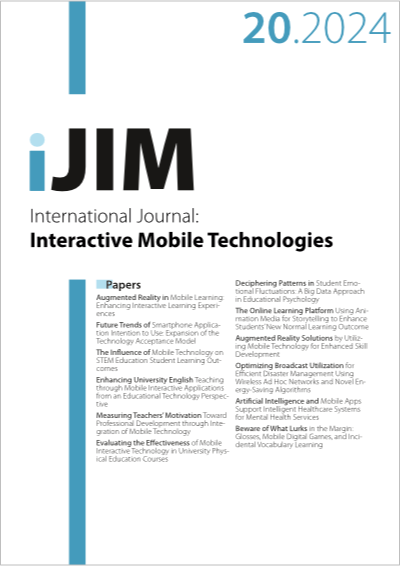Enhancing University English Teaching through Mobile Interactive Applications from an Educational Technology Perspective
DOI:
https://doi.org/10.3991/ijim.v18i20.51885Keywords:
mobile interactive applications, university English teaching, dynamic trust model, trustworthiness calculation, dynamic recommendation algorithmAbstract
In the context of globalization and rapid advancements in information technology (IT), the application of educational technology in higher education has become increasingly prevalent. Particularly in university English teaching, mobile interactive applications have emerged as a significant teaching model. These applications transcend the constraints of time and space, providing students with a flexible learning environment that promotes interaction between teachers and students, thereby enhancing learning outcomes. However, existing research has primarily focused on the technological development and effectiveness evaluation of mobile interactive applications, neglecting the impact of student interaction and trust on learning outcomes. Additionally, there is a lack of dynamism and personalization in the recommendation of educational resources and study partners. This study constructs global and local dynamic trust models for mobile interactions, calculates trustworthiness based on mobile interactive behaviors, and integrates mobile interaction trust relationships and behaviors with a dynamic English recommendation algorithm, thereby providing a new theoretical framework and a practical approach for university English teaching, aiming to enhance the teaching effectiveness and improve students’ learning experiences.
Downloads
Published
How to Cite
Issue
Section
License
Copyright (c) 2024 Nan Zhang (Submitter); Qian Wen

This work is licensed under a Creative Commons Attribution 4.0 International License.



